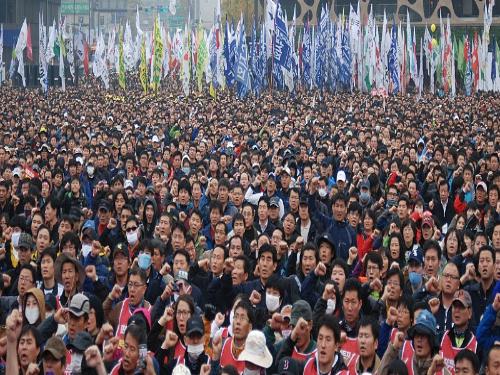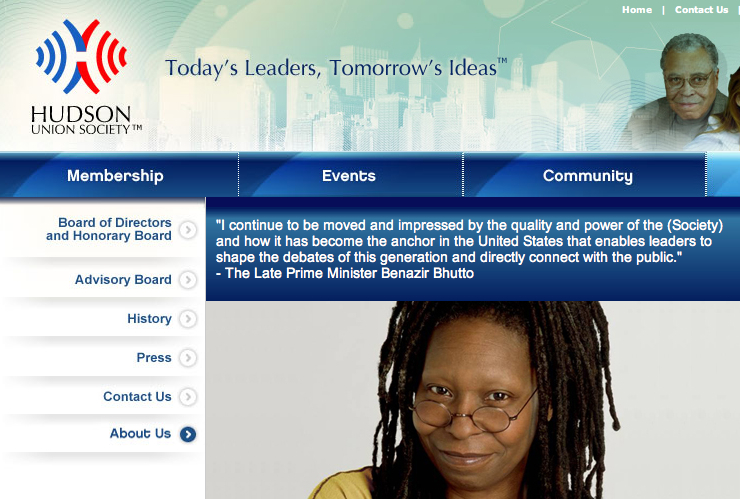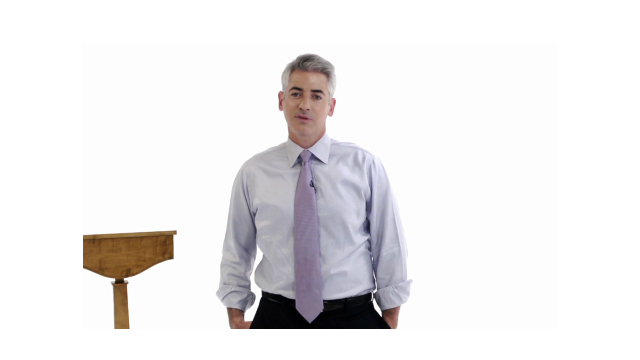bigthinkeditor

Thailand is paying a price for rapid urbanization, which is one key reason floods are so badly affecting slowly sinking Bangkok. Should it move the entire city, as some experts advise?
Today’s protesters are asking for little: a fairer economy and society. But, on another level, they are asking for a great deal: a democracy where people, not dollars, matter.
Relations between longtime foes Pakistan and India are thawing. Recent progress on trade normalization was welcomed in Washington as a step toward stability in South Asia.
Europe enjoyed a common currency regime 2000 years ago and the old Roman empire could teach us a thing or two about the euro and its flaws today.
Big Think is pleased to announce a new partnership with the Hudson Union Society, which we hope will be a mutually beneficial arrangement to help foster our shared goal of […]
Ethan Philbrick performs at The Nantucket Project. Ethan grew up on Nantucket and has been playing music voraciously since he was 4 years old. Ethan has played music in a […]
▸
4 min
—
with
Gustav Klimt’s “Litzlberg on the Attersee” sold for $40.4 million to the din of jobless and struggling union workers picketing outside Sotheby’s auction house in New York City last night. […]
“If you’re going to be successful in your career, you’re going to make some money,” says hedge-fund manager and Floating University lecturer William Ackman. “And how you invest that money […]
The James Webb Telescope has become a political football since it, predictably, has run over time and budget. Why can’t N.A.S.A. and Congress do better financial planning?
Book publishers have largely been silent on privacy but now one is suing 27 people for distributing its books on BitTorrent. A similar strategy won the music industry few fans.
Here’s why the B.B.C. has switched off its auto-feed tweets during the day—human tweets are more likely to get people interested and engaged, retweeting and clicking through.
Two interesting case studies of videos that went viral: one was followed by 1 million online product sales and the other translated into none. The difference? A call to action and a link.
Expect 2012 to be the year of a major push to sell us ‘families’ of interconnected screen devices that use the cloud to store our digital entertainment libraries.
The Who guitarist Pete Townshend has called on Apple to help the “dying record business” by supporting new talent, instead of bleeding musicians like a “digital vampire”.
Qaddafi was not the worst of the modern world’s dictators, but few were as vain and capricious, and in recent times only Fidel Castro reigned longer. What is his legacy in Libya?
Obama has been quick to stress, “We lead from the front” but leading from behind is in fact the smart strategy in today’s world, argues Roger Cohen.
In a bizarre twist to Mexico’s drug war, an international group of online hackers has warned a drug cartel to release one of its members, or see its private details published.
Will China become the banker to the rest of the world? Here’s why the E.U. can’t rely on the U.S. but could rely on China to help bail it out of its liquidity crisis.
Having hit the human population milestone of seven billion, the future we now need to face is not one of too much population growth, but too little, says strategist Sanjeev Sanyal.
Robert Scoble on why it’s more interesting on Google+ than Twitter or Facebook: because it’s for finding, and talking with, the people who are interested in the same thing you are.
Winning a second term will be almost impossible for Obama without continued support from voters aged 29 and under—one key reason he needs a stronger social media strategy.
Dell predicts that IT managers will move to the sort of model that film studios use: big temporary teams that come together to solve a problem then disband.
Amazon, aggressively expanding its publishing efforts, can sell a lot of books. But many writers don’t want to publish to an algorithm, they care about making culture and art.
Pay for a fast food lunch with your credit card then see weight loss ads next time you’re online. That kind of outcome is likely under moves Visa and Mastercard are studying.
UNESCO could soon grant the Palestinians membership, a move that would see the U.S. resign and could spur a chain of similar situations. At what cost to the U.S.?
The world’s population is about to reach seven billion. Can we handle that many humans, let alone the three billion more expected to be added by the end of this century?
Digital communication, such as via Tweets, worsens the unhealthy popularity of curt, rapid opinions. Is comment, like a strangler-fig, getting stronger than the politics on which it feeds?
Much of the Arab world has undergone a revolution of sorts, but a leaderless one. The common consensus is that economic conditions will worsen before they improve.
Why are China’s SMEs–the beating heart of the country’s economic dynamism–struggling to get loans from the formal financial sector? Local governments are crowding them out.





























